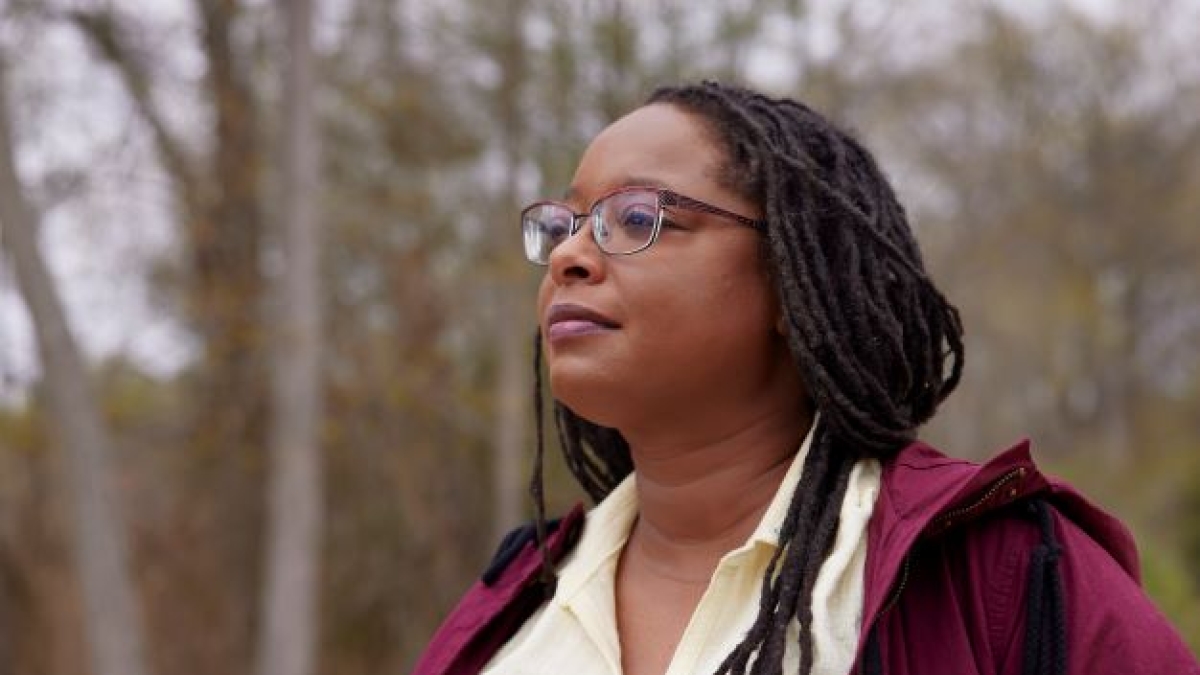Global Futures faculty member receives Fulbright Scholar Award to snapshot Australian fisheries

Lekelia "Kiki" Jenkins will use photography as a storytelling method to increase sustainability and safety measures in Australian fisheries.
Often seen as two separate or even opposite subjects, the intersection of art and science is deeply familiar territory to Arizona State University Associate Professor Lekelia "Kiki" Jenkins. Her upcoming project, funded by the Fulbright Scholar Award, combines photography, safety and sustainability in Australia’s commercial fishing industry.
The project will explore the effectiveness of photography in increasing fishers' safety and implementing sustainable fishing practices. Jenkins will base her work out of the University of the Sunshine Coast from January through May 2023.
“There are recommendations that are made to promote sustainable fishing, but those recommendations aren’t always used,” said Jenkins, a senior global futures scientist in addition to her faculty affiliation in the ASU School for the Future of Innovation in Society. “Art may bring in that emotional component and be more compelling.”
Jenkins plans to utilize Photovoice, a visual research technique and artform, as both a display and a data collection method. Members of the Australian fishing community will directly participate by taking photos throughout the project.
Jenkins is one of the first recipients of the Fulbright Scholar Award funded by the Australia Regional Universities Network. While Fulbright awards to Australia can be especially competitive, Jenkins said the competitive nature of the award is not what drove her to apply — she hadn’t considered applying until she went to an informal session about the award hosted at ASU.
“The university has a really robust system in connecting people with the Fulbright award, and it really encouraged me to start thinking about applying,” Jenkins said. “I was looking for someplace where I could do science art, preferably in the context of marine science. The University of the Sunshine Coast is an epicenter for marine environmental science art.”
The ASU Fulbright Office provides extensive resources to faculty and staff who are interested in applying to the Fulbright program. Karen Engler-Weber, who serves as ASU’s liaison to the Fulbright Scholars and Specialists program, said participating in the Fulbright program is “an exciting, life-changing opportunity.”
“ASU Fulbright is here to support the Fulbright endeavors of our faculty and staff at every stage of the process, from selecting the right award to apply for, to navigating host institutions, to thorough reviews of all application materials,” Engler-Weber said.
Jenkins said applying for the award will enable her to further her work in science art as well as immerse herself in the culture and community of Australia, a place she has never been. Her Fulbright award extends through four months, which is the amount of time Jenkins has to develop relationships with local fishing communities and encourage their engagement in the art.
“There are some logistics that come with the time period and getting people to give their time and attention, but ultimately this project connects back to the importance of families and feeding your country,” she said.
Through the medium of photography, Jenkins hopes to facilitate meaningful conversations and implementation of safety and sustainability practices.
“Art allows people to sit with heavy conversations longer, and the longer we can have these difficult discussions, the closer we can get to solutions.”
More Science and technology

ASU-led space telescope is ready to fly
The Star Planet Activity Research CubeSat, or SPARCS, a small space telescope that will monitor the flares and sunspot activity…

ASU at the heart of the state's revitalized microelectronics industry
A stronger local economy, more reliable technology, and a future where our computers and devices do the impossible: that’s the…

Breakthrough copper alloy achieves unprecedented high-temperature performance
A team of researchers from Arizona State University, the U.S. Army Research Laboratory, Lehigh University and Louisiana State…

